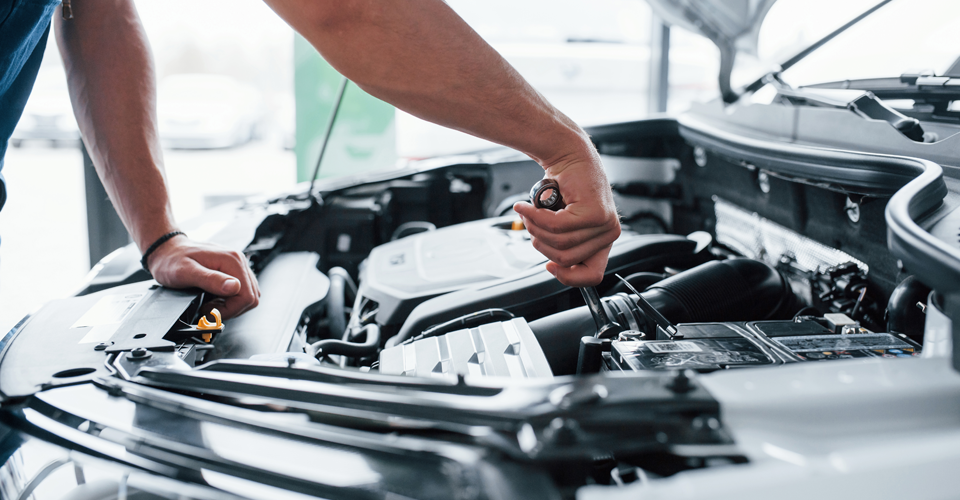Keep your vehicle running smoothly and safely with a complete guide to full car servicing. Learn what a full car service includes, how often you should get one, and why it’s essential for safety, efficiency, and long-term reliability.
Everything You Need to Know to Keep Your Vehicle in Top Shape
Your car does a lot for you daily commutes, weekend getaways, and everything in between. But to keep it running smoothly and safely, regular maintenance is a must. While a quick oil change is fine now and then, every vehicle eventually needs something more comprehensive: a full car service.
But what exactly does that include? How often should it be done? And is it really worth the extra time and cost?
Let’s break it down.
What Is a Full Car Service?
A full car service is a detailed, scheduled check-up that covers all the essential systems in your vehicle. It goes beyond basic maintenance to ensure your car is safe, efficient, and road-ready.
Most car manufacturers recommend getting a full service once a year or every 20,000 kilometres, whichever comes first. However, always check your vehicle’s service manual for the exact schedule especially if you drive under tough conditions, like stop-start traffic or extreme heat.
What’s Included in a Full Car Service?
While specific service packages vary by workshop, a typical full service includes these key areas:
1. General Safety & Functional Checks
Technicians begin with safety basics and ensure everything is functioning properly:
- Battery test
- Headlights, taillights, indicators
- Windscreen wipers and washer jets
- Horn and dashboard warning lights
- Interior systems like seatbelts and air filters
These checks help ensure your car remains safe and comfortable to drive.
2. Engine Care & Replacements
Keeping the engine healthy is at the core of a full service:
- Engine oil and oil filter change
- Air filter replacement
- Visual inspection of engine belts and hoses
- Spark plug inspection or replacement (if due)
- Timing belt check (based on service interval)
Engine-related issues are costly when ignored, so preventive care goes a long way.
3. Fluid Level Checks & Top-Ups
All essential vehicle fluids are checked for correct levels and condition:
- Coolant/antifreeze
- Transmission fluid (for automatic cars)
- Brake fluid
- Power steering fluid
- Windscreen washer fluid
If any are contaminated or below normal levels, top-ups or flushes may be done. Leaks, if detected, will also be flagged.
4. Brake System Inspection
One of the most critical safety systems your brakes receive special attention:
- Brake pad and disc wear check
- Brake line and hose inspection
- Brake fluid condition
- Parking brake function
If anything’s worn or near its limit, the garage will recommend replacements.
5. Tire & Wheel Condition
Your tires and wheels get a full check-up:
- Tread depth measured (legal minimum: usually 1.6 mm)
- Uneven wear or damage spotted
- Tire pressure adjusted
- Wheel alignment or rotation suggested (if needed)
Properly maintained tires improve handling, braking, and fuel efficiency.
6. Steering System Evaluation
A responsive, smooth steering system is vital for safety:
- Power steering fluid levels
- Inspection of hoses and steering rack
- Tie rod ends and linkages
Any looseness or stiffness could be a sign of wear, which should be addressed early.
7. Suspension & Chassis Inspection
Your suspension affects both comfort and control. Technicians will check:
- Shock absorbers, struts, and coil springs
- Suspension bushings and ball joints
- Wheel bearings
- Driveshafts and CV joints
A damaged suspension can make your vehicle unstable, especially at higher speeds.
8. Drivetrain & Transmission Check
Whether your car is front-wheel, rear-wheel, or all-wheel drive, the drivetrain is inspected:
- Clutch operation (manual vehicles)
- Transmission smoothness
- Differential and transfer case (if equipped)
Small issues here can quickly snowball into expensive repairs if ignored.
9. Exhaust System Inspection
Even without a warning light, exhaust problems can quietly affect fuel economy and emissions:
- Visual inspection of exhaust pipes and joints
- Check for rust, holes, or leaks
- Emission smoke evaluation
Some countries may require an emissions test at this stage.
What’s the Difference Between a Basic and Full Service?
- A basic service usually includes just an oil change, oil filter replacement, and a few visual checks.
- A full service goes far deeper, covering nearly every critical system in your vehicle, replacing more parts and identifying hidden issues before they become expensive.
How Long Does a Full Car Service Take?
A full service typically takes between 2 to 4 hours, depending on your car’s make, model, and any additional repairs that may be needed. Some services, like timing belt or spark plug replacements, may take longer.
How Often Should You Get a Full Car Service?
As a general rule, you should get a full car service once a year or every 20,000 kilometres. However, you might need it more often if you:
- Drive long distances daily
- Frequently deal with stop-and-go traffic
- Live in extreme climates (hot, dusty, or humid)
- Regularly tow trailers or carry heavy loads
Why Is a Full Car Service Worth It?
Here are five solid reasons:
1. Improved Safety
Routine inspections catch problems early before they lead to dangerous situations.
2. Better Fuel Efficiency
Clean filters, fresh oil, and properly inflated tires help your engine run more efficiently.
3. Fewer Breakdowns
A small fix now often prevents a much costlier breakdown later.
4. Longer Vehicle Life
Well-maintained engines and systems simply last longer.
5. Higher Resale Value
A stamped service history boosts buyer confidence and helps you get top value when it’s time to sell.
Final Thoughts
A full car service may feel like a big upfront cost, but it’s an investment that pays off. Your car runs better, lasts longer, and stays safer on the road. Whether you’re heading to work or planning a road trip, the confidence of knowing your vehicle has been professionally inspected is priceless.
Ready to Book Your Next Full Car Service?
MotorHub helps drivers connect with trusted workshops for reliable, professional car care. Don’t wait for warning lightsstay ahead of issues with a full service you can count on.


